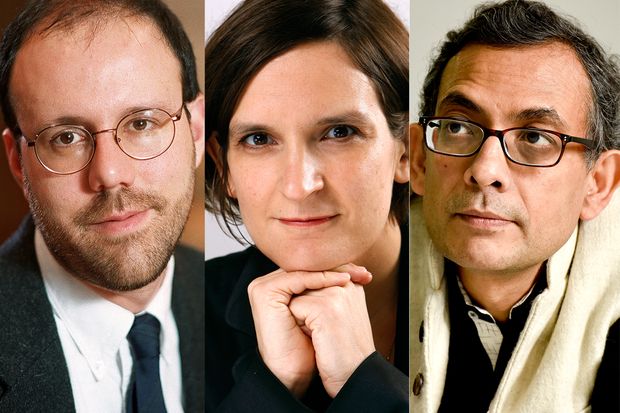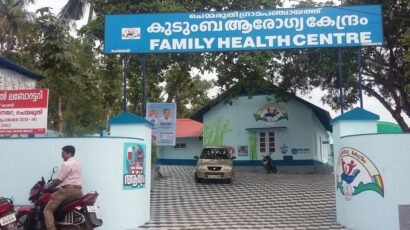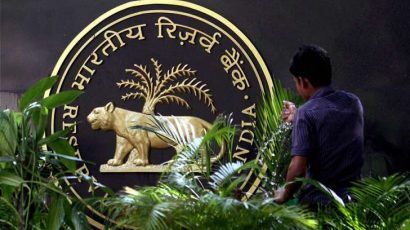These Nobel Laureates are a class apart; they are on a mission to find ways to alleviate global poverty

“The research conducted by this year’s Laureates has considerably improved our ability to fight global poverty. In just two decades, their new experiment-based approach has transformed development economics, which is now a flourishing field of research.” — Swedish Academy.
The Swedish Academy’s decision to award its prestigious prize for Economics this year to Abhijit Banerjee, his wife and fellow MIT professor Esther Duflo and Harvard’s Michael Kremer has come as no surprise to their colleagues, students at MIT and Harvard and those who know about their work to find ways to alleviate global poverty. They vouch this honour for these three eminent scholars is very appropriate.
Vijay Govindarajan, a distinguished professor at the Tuck School of business at Dartmouth who knows Banerjee, says, “By honouring them, the Nobel Committee is putting the spotlight on the problems of the poor in countries like India and the continent of Africa and the need for breakthrough technologies and innovations to solve such problems—affordable health, access to clean water, and quality education, and renewable energy, to name a few.”
“This year’s Laureates have introduced a new approach to obtaining reliable answers about the best ways to fight global poverty. In brief, it involves dividing this issue into smaller, more manageable, questions – for example, the most effective interventions for improving educational outcomes or child health. They have shown that these smaller, more precise, questions are often best answered via carefully designed experiments among the people who are most affected,” the Swedish Academy said in a statement.
Abhijit Banerjee and Esther Duflo work together in MIT’s economics department. They got married in 2015. This is for the first time in the history of the Academy that a couple is awarded the prestigious prize.
Duflo is the second woman to receive the Nobel for Economics and the youngest across all the categories and genders.
When a reporter asked at a news briefing at MIT following the announcement of the Nobel, “how it felt to be joining other Nobel winners from Kolkata,” Banerjee said, “I assume they were all much more distinguished than me.” That’s Abhijit Banerjee. So humble and unassuming.
At the news conference, the Banerjees spoke about their work, “Movement,” as they call it, and their research projeccts in India and around the world.
“It is wonderful for the movement,” Banerjee said about the Nobel honour and hoped the prize would make it easier for them to promote the use of “randomized controlled trials” in development economics — in place of intuition or the flavour of the day, as Duflo put it — “to open doors” and “open opportunities” to do more.
Banerjee and Duflo founded the Abdul Latif Jameel Poverty Action Lab (J-PAL) at MIT with Sendhil Mullainathan in 2003, and he remains one of the lab’s directors.
Banerjee’s MIT bio says he is “a past president of the Bureau of the Research in the Economic Analysis of Development, a Research Associate of the NBER, a CEPR research fellow, International Research Fellow of the Kiel Institute, a fellow of the American Academy of Arts and Sciences and the Econometric Society, and has been a Guggenheim Fellow and an Alfred P. Sloan Fellow and a winner of the Infosys prize and author of many articles and four books, including Poor Economics, which won the Goldman Sachs Business Book of the Year.”
The bio also says Banerjee “is the editor of three more books and has directed two documentary films. He also served on the U.N. Secretary-General’s High-level Panel of Eminent Persons on the Post-2015 Development Agenda.”
Banerjee was born in Calcutta (now Kolkata) and studied economics at Presidency College at the University of Calcutta, Jawaharlal Nehru University and Harvard University. He received his PhD from Harvard in 1988. He is currently the Ford Foundation International Professor of Economics at the Massachusetts Institute of Technology (MIT).
Esther Duflo grew up and completed her first degrees in Paris, She got her PhD from the Massachusetts Institute of Technology (MIT). She is a professor of poverty alleviation and development economics at MIT.
Winner of the MacArthur “genius” Fellowship in 2009, Duflo was named as one of the “forty under forty” most influential business leaders by Fortune magazine in 2010. The book she wrote with her husband Banerjee, Poor Economics: A Radical Rethinking of the Way to Fight Global Poverty, won the Financial Times and Goldman Sachs Business Book of the Year award in 2011.
Michael Kremer is the Gates Professor of Developing Societies in the Department of Economics at Harvard University. He is the 2019 co-recipient of the Sveriges Riksbank Prize in Economic Sciences in Memory of Alfred Nobel. He is a Fellow of the American Academy of Arts and Sciences, a recipient of a MacArthur Fellowship and a Presidential Faculty Fellowship, and was named a Young Global Leader by the World Economic Forum. Kremer’s recent research examines education, health, water, and agriculture in developing countries.















